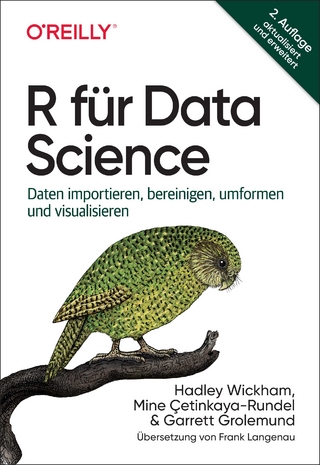
Experimental Design and Scientific Data Analysis
Routledge (Verlag)
978-1-032-50164-2 (ISBN)
- Noch nicht erschienen (ca. November 2024)
- Versandkostenfrei innerhalb Deutschlands
- Auch auf Rechnung
- Verfügbarkeit in der Filiale vor Ort prüfen
- Artikel merken
Experimental Design and Scientific Data Analysis provides accessible information about the research process from start to finish as applied to conservation to enable readers to successfully plan and carry out research and share findings effectively with others.
The book is divided into two parts, starting with experimental design in Part I and then considering data analysis in Part II. Part I takes the reader through the process of designing and planning experiments, from the initial design of aims and objectives to ethical testing, and includes a range of examples to demonstrate how these ideas apply to a range of specialisms and materials. Part II focuses on what to do with data once it has been collected, including choosing the right statistical test, different methods of presenting information, and communicating your findings clearly to your chosen audience. Questions at the end of each chapter are designed to help readers check and consolidate their knowledge of the different topics.
Experimental Design and Scientific Data Analysis is suitable for students, emerging professionals, and experienced conservators at different stages of their careers, and is particularly suitable for those without a scientific background.
Lynda K. Skipper is a senior lecturer in conservation at the University of Lincoln, UK, focusing on science, research, and preventive conservation. She has a PGCE in higher education teaching and is a Fellow of the Higher Education Academy. She researches historic interiors and stone biodeterioration. Philip J. A. Skipper is a research associate and associate lecturer at the University of Lincoln. He also works as a freelance consultant, currently contracted with Historic England to provide advice and carry out research projects on biological growth, biodeterioration of heritage materials, surface treatments, and general heritage science.
Introduction to this book; Part 1: Experimental design; Chapter 1. Why?: scientific method and writing a research question; Chapter 2. How?: experimental design methodology; Chapter 3. What: ethical sampling and scientific rigour; Part 2: Scientific Data Analysis; Chapter 4: Introduction to statistics for conservators; Chapter 5: How to display results; Chapter 6: Writing reports in scientific style.
| Erscheint lt. Verlag | 26.11.2024 |
|---|---|
| Reihe/Serie | Science for Conservators |
| Zusatzinfo | 21 Tables, color; 27 Line drawings, color; 12 Halftones, color; 39 Illustrations, color |
| Verlagsort | London |
| Sprache | englisch |
| Maße | 156 x 234 mm |
| Gewicht | 450 g |
| Themenwelt | Informatik ► Datenbanken ► Data Warehouse / Data Mining |
| Naturwissenschaften ► Chemie ► Technische Chemie | |
| Technik ► Maschinenbau | |
| ISBN-10 | 1-032-50164-2 / 1032501642 |
| ISBN-13 | 978-1-032-50164-2 / 9781032501642 |
| Zustand | Neuware |
| Haben Sie eine Frage zum Produkt? |
aus dem Bereich


